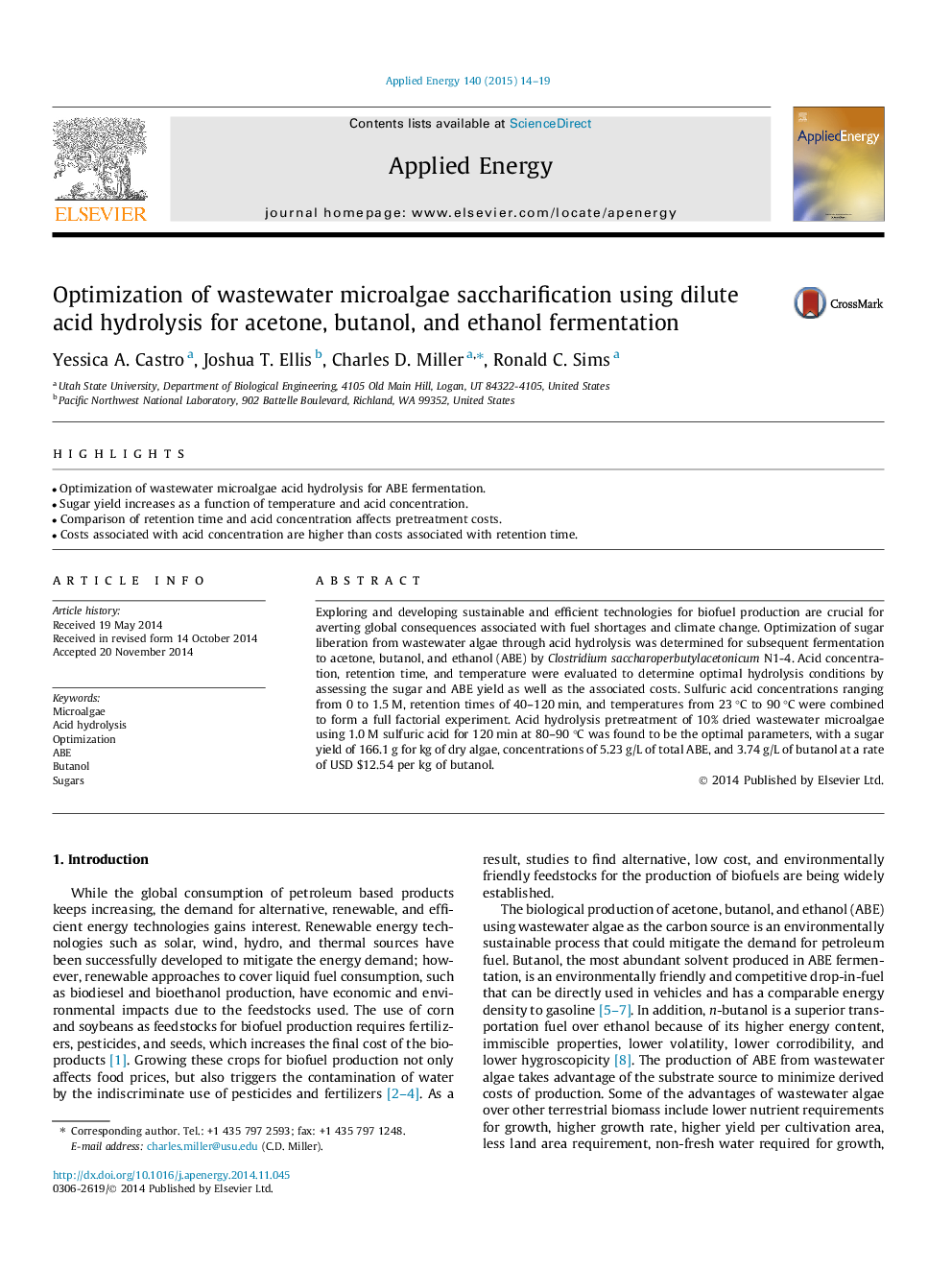| Article ID | Journal | Published Year | Pages | File Type |
|---|---|---|---|---|
| 6687809 | Applied Energy | 2015 | 6 Pages |
Abstract
Exploring and developing sustainable and efficient technologies for biofuel production are crucial for averting global consequences associated with fuel shortages and climate change. Optimization of sugar liberation from wastewater algae through acid hydrolysis was determined for subsequent fermentation to acetone, butanol, and ethanol (ABE) by Clostridium saccharoperbutylacetonicum N1-4. Acid concentration, retention time, and temperature were evaluated to determine optimal hydrolysis conditions by assessing the sugar and ABE yield as well as the associated costs. Sulfuric acid concentrations ranging from 0 to 1.5 M, retention times of 40-120 min, and temperatures from 23 °C to 90 °C were combined to form a full factorial experiment. Acid hydrolysis pretreatment of 10% dried wastewater microalgae using 1.0 M sulfuric acid for 120 min at 80-90 °C was found to be the optimal parameters, with a sugar yield of 166.1 g for kg of dry algae, concentrations of 5.23 g/L of total ABE, and 3.74 g/L of butanol at a rate of USD $12.54 per kg of butanol.
Related Topics
Physical Sciences and Engineering
Energy
Energy Engineering and Power Technology
Authors
Yessica A. Castro, Joshua T. Ellis, Charles D. Miller, Ronald C. Sims,
